- Home
- Jay Bonansinga
The Walking Dead: The Fall of the Governor: Part Two Page 11
The Walking Dead: The Fall of the Governor: Part Two Read online
Page 11
The door slams behind her, the residual tension crackling in her slipstream.
* * *
For an endless, agonizing moment, Philip Blake kneels before his monstrous offspring in the dusty gloom of that apartment foyer. Penny looks strangely hobbled by the slipshod dental procedure. She wobbles on her spindly little legs for a moment, moving her blackened lips around rotten, bloody gums, her empty gaze riveted on the man in front of her.
Philip leans down toward the dead girl, his mind filled with false memories of tucking his daughter into bed at night, reading storybooks to her, stroking her lustrous goldenrod curls, and planting kisses on her fragrant little forehead. “All better,” he murmurs to the creature chained to the wall. “Now, come here.”
He puts his arms around her and gives her a hug. She feels like a brittle husk in his arms, like a tiny scarecrow. He cradles her cold, mottled jawline in his gloved left hand. “Give Daddy a kiss.”
He kisses her rancid divot of a mouth, seeking warmth and love, but tasting only the bitter rot of spoiled meat and flyspecked feces. He rears back, an involuntary jerk, repulsed by the string of slimy tissue adhering to his lips. He gasps and frantically wipes away the black drool, his stomach heaving suddenly.
She lurches toward him, eyes narrowing, trying to bite him with her pulpy black gums.
He doubles over, holding her head back with one arm. The nausea within him turns to a column of hot bile rising up his gorge. He vomits on the hardwood floor, the yellow viscous stew of stomach acids spattering across the floorboards. He wretches and convulses until there’s nothing left to expel.
Falling back on his knees, he wipes his mouth, hyperventilating. “Oh, honey … I’m sorry.” He swallows hard and tries to get his bearings back, tries to push back the shame and disgust. “Don’t think anything of it.” He gets his breath back. He swallows again. “I’m sure … with time … I’ll … I’ll…” He wipes his face. “Please don’t let this—”
All at once the bang of somebody knocking loudly on the apartment door interrupts. The Governor sniffs back his revulsion. He blinks at the noise. “Fuck!” He rises on weak knees. “FUCK!”
* * *
Over the course of the next thirty seconds—the time it takes Philip Blake to get himself together, cross the foyer, unsnap the dead bolt, and throw the door open—he transforms from a trembling, weak, unrequited father to a diamond-hard leader of men. “Did I or did I not say I was not to be disturbed?” he snarls coldly at the shadowy figure standing in the dim light of the corridor.
Gabe clears his throat instinctively. Clad in an army surplus jacket cinched at the waist with a gun belt and bandolier, he measures his words. “Sorry, boss—some shit’s going down.”
“What shit?”
Gabe takes a deep breath. “Okay, there was an explosion. We think at the National Guard station—huge cloud of smoke going into the air. Bruce took some men to investigate. They were gone a few minutes, and then we heard gunfire nearby.”
“Nearby?!”
“Yeah, same direction.”
The Governor sears his gaze into the man’s eyes. “Then why don’t you just grab a car and—FUCK!” He turns back to the apartment. “Never mind!—Forget it!—Follow me!”
* * *
They take one of the armored trucks. The Governor rides in the cab on the passenger side, holding an AR-15 on his lap, as Gabe drives. Gabe hardly says a word the whole trip out—down Flat Shoals Road, past miles of walker-riddled forest, up Highway 85, and down a long farm road toward the smudge of black smoke visible against the night sky—while the Governor silently broods in the shotgun seat. A pair of Gabe’s men, Rudy and Gus, ride outside the cab, one on each flank, standing on a footrail in the wind, cradling assault rifles.
As they rumble eastward through the night, the Governor feels his phantom arm twinge with needles of pain at every bump, every jerk—a bizarre sensation that keeps tugging at his peripheral vision in the green glowing darkness of the cab, making him think there’s a tingling ghost-arm protruding from his stump—and it makes him angrier by the minute. He ruminates silently in the rattling dark, thinking about going to war, thinking about twisting off the head of that bitch who attacked him.
The great military leaders of yore, the men Philip has read about in history books—everybody from MacArthur to Robert E. Lee—stayed away from the front, huddled in tents with their commanders, planning, strategizing, looking at maps. Not Philip Blake. He fancies himself as Attila the Hun, or maybe Alexander the Great, roaring into Egypt with revenge on his mind and death dripping off the bloody tip of his sword. His eye patch itches as the adrenaline courses through him. He wears a leather driving glove on his left hand that creaks as he clenches his fist.
They approach a familiar turnoff snaking off the main two-lane. The wind has blown a letter off the tall roadside sign, which now says:
Wal art
Save money. Live better.
In the middle distance, the Governor can see the vast leprous cement of the Walmart parking lot gleaming like a gray ocean in the moonlight. Near the west edge of the lot, a few dark, ragged objects lie on the pavement near a familiar-looking cargo truck. The Governor recognizes the truck—it’s from Woodbury’s fleet.
“Fuck!” The Governor points. “Over there, Gabe—near the garbage Dumpsters!”
Gabe guns the truck and it booms across the parking lot, raising a cloud of dust into the night sky. The air brakes come on as they approach the battlefield. Gabe skids to a stop thirty feet away with a jerk.
“FUCK!” The Governor shoves his door open and stands on the skid, gazing at the carnage strewn across the lot like discarded rag dolls. “FUCK!”
The Governor hops off the skid and leads the three other men across the lot to the dead bodies. For a moment, nobody says anything. The Governor surveys the scene, makes note of the evidence. The cargo truck still idles, the carbon monoxide and cordite still hanging in the air like a thick blue shroud over the scene.
“Jesus,” Gabe utters, looking down at the four bodies lying in pools of blood across the concrete. One of them is headless, the body also missing hands, the severed cranium lying in a puddle of gore fifteen feet away. Another one—the kid named Curtis—lies supine with arms akimbo and dead eyes still open and staring up at the stars. A third one lies dead in a swamp of blood and tissue, his guts blooming out of a large gash in his belly. It doesn’t take Sherlock Holmes to deduce that the long, clean cuts—the neatly severed appendages—are the result of a Japanese katana sword.
Gabe walks over to the largest body, a black man still clinging to life but quickly bleeding out, his neck ravaged by multiple high-caliber blasts. His face sticky with his own blood, his eyes showing mostly whites, Bruce Cooper tries to speak with his last breaths.
Nobody can understand him.
The Governor moves over to the fallen man and gazes down at the body with very little emotion other than simmering rage. “His head is still intact,” Philip says to Gabe. “He’ll probably be turning soon.”
Gabe starts to say something in response when the faint sound of Bruce Cooper’s baritone voice—now breathless and choked with agony—can be heard under the wind. The Governor kneels and listens closely.
“S-ssaw the bald f-fuck, the k-kid,” Bruce utters, his throat filling with blood. “They … came b-back … they…”
“Bruce!” The Governor leans closer. His angry bark lacks any compassion. “BRUCE!”
The big man on the ground has nothing left. His big shaved head—now stippled with blood as black as pitch—begins to loll one last time. His eyes flutter once, and then go still, fixed, lifeless as marbles. The Governor stares at the man for a moment.
Then the Governor looks down at the cement and closes his eyes.
He doesn’t see the others bowing their heads with grudging respect for the iron-fisted enforcer who dutifully did the Governor’s bidding, who stood by the Governor without question, without recompense, with
out hesitation. Now Philip Blake fights the anguish seeping into his thoughts like a volatile chemical clouding his resolve. Bruce Cooper is just one man—a single cog in the Woodbury machine—but he secretly meant the world to Philip. Other than Gabe, Bruce was the closest thing to a friend Philip had in this world. Philip confided in Bruce, let him see the aquariums, let him see Penny. Bruce was unconditional in his respect—if not love—for Philip Blake. In fact, as far as Philip can tell, it was Bruce who saved his life, who forced Bob to get his shit together and treat the injuries.
The Governor looks up. He sees Gabe turning away, bowing his head as though offering deference and privacy to his boss in this excruciating moment, the 9 mm Glock still holstered on Gabe’s hip. There is only one thing left to do—one loose end to be tied up.
The Governor grabs the pistol from Gabe’s holster, making Gabe jerk with a start.
Aiming the muzzle down at Bruce’s head, he squeezes off a single shot—point-blank—sending a hollow-point slug into Bruce’s skull. The discharge makes everybody else jump, everybody except the Governor.
He turns to Gabe. “They were just here.” The Governor speaks now in a low, thick voice—a voice charged with latent rage and mayhem. “Find their fucking tracks. Find their fucking prison.” He fixes his fiery gaze from one good eye into Gabe’s eyes and roars suddenly: “FIND IT NOW!!”
Then he walks away toward the armored truck without another word.
* * *
For a long time, standing amid the dead bodies scattered like broken mannequins across the desolate, moonlit parking lot, Gabriel Harris is paralyzed with indecision. Watching the Governor storm away, climb behind the wheel of the armored truck, and rumble off into the night leaves Gabe speechless and bewildered. How the hell is he supposed to find this fucking prison on foot, with no supplies, very little ammunition, and just a couple of men? For that matter, how the fuck are they supposed to get back home? Fucking hitchhike? Then, over the space of an instant, Gabe’s state of complete and utter vexation changes to pure, unadulterated resolve when he glances back at the remains of Bruce Cooper, his friend, his comrade-in-arms.
The sight of the big man lying in the moonlight—now as ruined and butchered as a flensed piece of meat—reaches down to some inner reserve deep within Gabe. A wave of contrary emotions wells up in him—sorrow, rage, and fear—and he bites down hard on the feelings. He orders the other two men to follow him.
They ransack what’s left of the merchandise rotting inside the defunct Walmart. In the shadowy nooks and crannies, under fallen displays and on the floors behind counters, they find a couple of useable backpacks, a flashlight, a pair of binoculars, a box of crackers, a jar of peanut butter, some notebook paper, pens, batteries, and two boxes of .45 caliber slugs.
They stow the supplies into the backpacks and then set out to the east, at first following tire tracks, wending their way down a dusty adjacent access road, and then making a sharp turn to the south. They follow the tracks down dirt roads all night, until the tracks take a turn onto a stretch of blacktop and instantly vanish.
Gabe refuses to give up. He decides they should fan out. He sends Gus to the east and Rudy off to the west, and they make plans to hook back up at the intersection of Highway 80 and 267.
The men go their separate ways, the thin beams of their flashlights receding into the predawn fog. Gabe uses his eleven-inch buck knife to slice through a stretch of thick foliage, cutting a swath straight south as the sky begins to lighten with the first hints of dawn.
An hour later, he runs into a few errant walkers weaving through the trees, drawn to his scent, and he manages to dodge most of them. At one point, a small one—either a child or a midget, its moldering face blackened beyond recognition—darts out of the brush at him. He takes it down with a single knife thrust to the skull. Sweat breaks out on the back of Gabe’s thick neck and drips down the small of his back as he picks up his pace, carving a path through the overgrown, neglected farm fields.
By midday, Gabe reaches the junction of two weather-beaten blacktop roads. He sees Rudy and Gus about twenty-five yards to the north, sitting side by side like owls on a split-rail fence, waiting for him, and judging by the sheepish, morose expressions on their faces, it’s obvious that they have each come up empty.
“Lemme guess,” Gabe says, approaching them from the south. “You didn’t find shit.”
Gus gives him a shrug. “Passed a bunch of little farm towns, all deserted … no prison.”
“Same,” Rudy grumbles. “Nothin’ but wrecked cars and empty buildings. Ran into a few walkers, was able to put them down without making much of a racket.”
Gabe lets out a sigh, pulls a handkerchief, and wipes the moisture from the back of his neck. “Gotta keep trying, goddamnit.”
Rudy starts to say, “Why don’t we try following—”
A sudden clap of gunfire echoes to the west, cutting off his words. It sounds like a small-caliber pistol. The sharp report reverberates across the sky, and Gabe jerks toward the sound, which comes from behind the tree line.
The other two men look up. Then they look at Gabe, who stares out at the rolling hills beyond the fence. For a moment, nobody says anything.
Then Gabe turns to the others and says, “Okay, follow me … and stay down. I got a feeling we just hit pay dirt.”
NINE
Lilly spends most of that day holed up in her apartment, chewing aspirin, prowling around her living room in her sweatpants and Georgia Tech football jersey, taking inventory of her storehouse of firearms and weaponry. The overcast daylight filters through the blinds, making her skull throb, but she ignores the aches and pains, operating now on the adrenal charge of pure hatred coursing through her like an electric current.
After a sleepless night and a series of tense exchanges with Austin, she is galvanized now, buzzing with contempt for these bastards who barged into Woodbury and made her lose her baby. After nearly two years of living amid the plague, Lilly has developed a unified theory of proper behavior among survivors. You either help one another—if you can—or leave each other the fuck alone. But these intruders have trampled over all decent modes of interaction and ruined everything, and the outrage burns brightly in Lilly. Thankfully, the tenderness in her midsection has faded slightly—along with the shock of all her dreams going up in smoke—which now only serves to make room for the white-hot loathing for these people that blazes within her as she paces the cluttered apartment.
All the crates and boxes and secondhand furniture have been pushed aside, stacked along the walls to make room for the arsenal of small arms, bladed weapons, and excess ammunition spread out across the floor. It hadn’t even occurred to her how much of this stuff she had been stockpiling over the months—perhaps out of paranoia, or maybe via some kind of dark intuition—but now she sees it all laid out in orderly rows. Her two .22 caliber Ruger MK IIs lay side by side at the top of the heap like crests on a coat of arms. An extra pair of 10-round magazines are lined up next to the pistols, and a web belt is coiled directly below the mags. Under this is a row of cartons filled with 40-caliber rounds, a machete, a row of assorted suppressors, Austin’s Glock on a stock of spare magazines, a Remington .308 bolt-action MSR rifle, three long-blade knives with varying degrees of sharpness, a long-handled pickax, and an odd assortment of holsters, sheaths, and pouches lined up in a neat little row.
Austin’s voice rings out from the adjacent kitchen. “Soup’s on!” He announces this with as much vigor and cheer as he can muster, but the sadness is apparent in his voice, a constant weight now dragging him down. “Whaddaya say we eat together in the back room?”
“Not hungry,” she calls to him.
“Lilly, c’mon … don’t do this to me,” he says, coming into the room wringing his hands on a towel. He wears a shopworn REM T-shirt, his long curls undone and spilling down his back. He looks nervous. “You need your nourishment.”
“What for?”
“Lilly, please.”
He licks his lips, thinking, choosing his words carefully. “You do realize that we may never see these people again.”
“Oh, we’ll see them … I promise you … we’ll see them again.”
“What does that mean?”
She stares at the weapons. “It means we’re not going to stop until we find them.”
“Why? What good is it going to do?”
She looks at him. “Did the IQ level just drop in here to, like, room temperature?”
“Lilly—”
“Have you not been paying attention to anything that’s been going on?”
“That’s the problem!” He throws the towel on the floor. “I’ve been with you every step of the way, I’ve been paying fucking close attention to everything.” He swallows hard, takes a breath, and then tries to calm down and measure his words. “I can see you’re hurting, Lilly, but I’m hurting, too.”
Lilly looks back down at the firearms and says very softly, “I know that.”
He comes over to her and touches her shoulder. “This is insane.”
She doesn’t move her gaze from the weapons. “It is what it is.”
“And what is that?”
She looks at him. “It’s fucking war.”
“War? Really? That sounds more like the Governor talking.”
“It’s us or them, Austin.”
Austin lets out an exasperated sigh. “I’m not worried about them, Lilly … I’m worried about us.”
She scorches him with her gaze. “You better pull your head out of your ass and start worrying about them, or there’s not going to be an us … there’s not going to be a Woodbury, there’s not going to be fucking anything.”
Austin looks down, and says nothing.

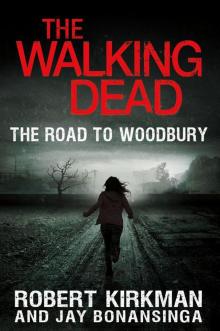 The Walking Dead: The Road to Woodbury
The Walking Dead: The Road to Woodbury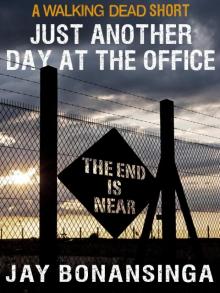 Just Another Day at the Office
Just Another Day at the Office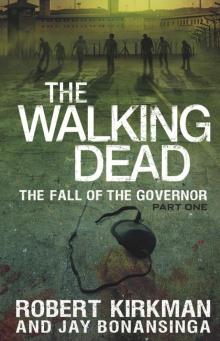 The Fall of the Governor: Part One
The Fall of the Governor: Part One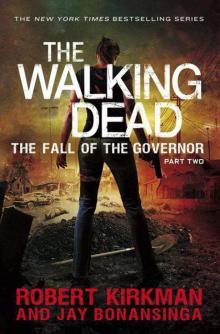 The Walking Dead: The Fall of the Governor: Part Two
The Walking Dead: The Fall of the Governor: Part Two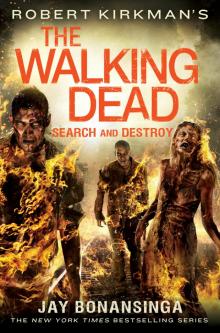 Search and Destroy
Search and Destroy Invasion
Invasion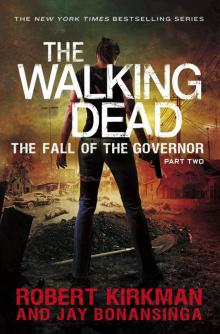 The Fall of the Governor: Part Two
The Fall of the Governor: Part Two The Walking Dead Collection
The Walking Dead Collection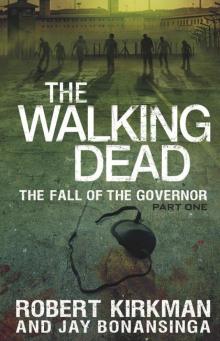 The Walking Dead
The Walking Dead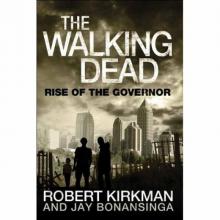 Descent
Descent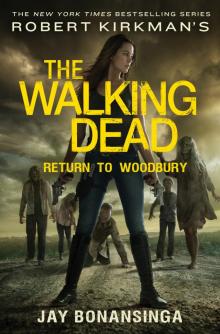 The Walking Dead: Return to Woodbury
The Walking Dead: Return to Woodbury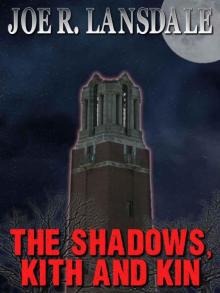 The Killer's Game
The Killer's Game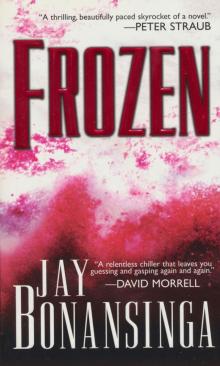 Frozen
Frozen Shattered
Shattered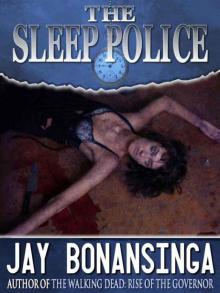 The Sleep Police
The Sleep Police Perfect Victim
Perfect Victim